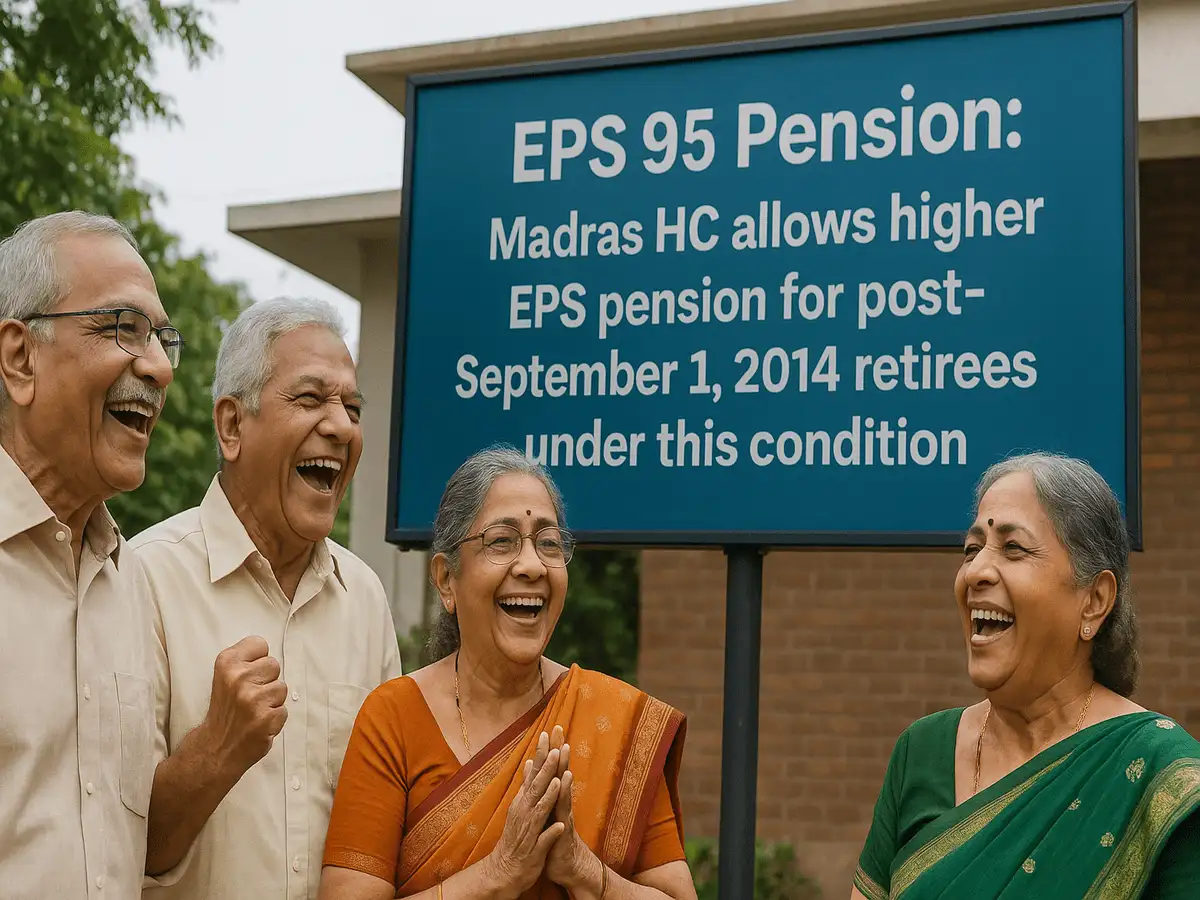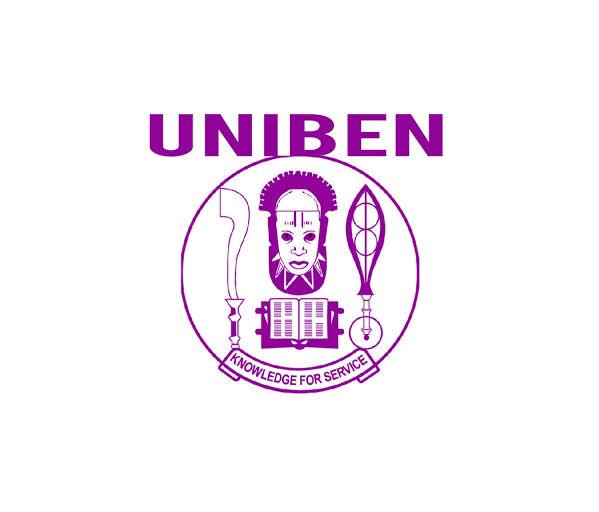EPS 95 Pension: Madras HC allows higher EPS pension for post-Sept 1, 2014 retirees under this condition
By Neelanjit Das
Copyright indiatimes

Eighty six retired employees of Bharat Heavy Electricals Limited (BHEL), Trichy, have filed a case in Madras High Court against the Employee’s Provident Fund Organisation (EPFO). The EPFO had rejected their joint application for higher pension since BHEL, Trichy is an exempted establishment and its Provident Funds Scheme is managed by a Trust. Income Tax GuideIncome Tax Slabs FY 2025-26Income Tax Calculator 2025New Income Tax Bill 2025According to paragraph no. 11(b) of BHEL Trichy’s provident fund trust rules, the employer’s contribution cannot exceed the ceiling limit of Rs 15,000. Therefore, EPFO said that any joint option put forth by both the employer and the employees would clearly be in violation of the Trust Rules, which have been mutually agreed upon by both the parties. For those who may not know, in March 1996, the government added a new provision in the EPS-95 scheme wherein the employer and employee were given an option to contribute 8.33% of their actual salary irrespective of whatever cap existed. This meant even if an employee’s salary is above the prevailing wage ceiling, which was Rs 5000 in 1996, they could have filed a joint application and requested for 8.33% deduction on higher wages.After the EPFO rejected their joint application, these retired 86 employees approached the Madras High Court, seeking a directive for the EPFO and others to address their claims for an increased monthly pension of under Section 17A of EPS-95. The retired employees also requested the court to issue a direction for payment of higher monthly pension on the basis of the respective employee’s last drawn salary (Basic Pay plus DA) from their respective entitlement dates. Additionally, they sought payment of any arrears after adjusting the monthly pension already received by each employee based on the salary ceiling and other amounts owed to them.On September 2, 2025, Madras High Court ruled in favour of the retired employees, even though they had retired after September 1, 2014. The Madras High Court directed EPFO to accept their joint application if they were presented on or before January 31, 2025 and the employees have remitted the differential amount if any with interest. Advocate G. Srinivasan represented the petitioners.Keep reading to find out the legal reason why these retired employees won the battle against Employee’s Provident Fund Organisation (EPFO) for higher pension.What did the Madras High Court say about higher pension in EPS?Justice R. Vijayakumar of the Madras High Court in the judgement (W.P(MD)Nos.29573 to 29578 of 2024) dated September 2, 2025, said that these 86 retired employees of BHEL, Trichy are the employees of an exempted establishment under Section 17 of the the Employees’ Provident Funds and Miscellaneous Provisions Act, 1952. The exemption is restricted to the Employees’ Provident Funds Scheme and they were continued to be governed by the Statutory Pension Scheme (EPS-95). The respondents (EPFO) have rejected the joint option application primarily on the ground that the joint option application is not only contrary but is in violation of the Trust Rules framed for an exempted establishment.The Madras High Court said that by relying on the Trust rules of BHEL, Trichy’s provident fund trust, the respondents (EPFO) have contended that the Trust Rules fixes the wage ceiling of Rs 15,000 for the contribution of the employer and out of the said Rs 15,000, 8.33% shall be diverted to the pension fund. The respondents (EPFO) further pointed out that, in case, the salary of the employee exceeds Rs 15,000, the contribution would be limited to a sum of Rs 15,000 only. By relying upon such a clause in the Trust deed, the respondents authorities (EPFO) are contending that the Trust Rules prohibit making any higher contribution by the employee either to the Provident Fund account or to the Pension Scheme. It is argued in this background that the joint option application presented by the employer and employees thus would be in violation of the Trust Rules which has been mutually agreed by them. The respondents (EPFO) also said that in view of the circular issued by the head office of the Employees’ Provident Fund Organisation dated January 18, 2025, the joint option application submitted by the exempted establishment, have to be considered only in the light of the Trust Rules.The Madras High Court said that as per the paragraph No.26(6) of the Employees’ Provident Fund Scheme, the employer and the employees can exercise the joint option for payment of contribution on actual wages instead of ceiling wages. This provision is more beneficial than the Trust Rules as far as the Provident Fund Scheme is concerned.Also read: Grandmother gave him Rs 10 lakh and created gift deed but income tax dept issued him notice; grandson partly wins case in ITAT Pune due to this reasonParagraph 27-AA of the Provident Fund Scheme deals with the terms and conditions for granting exemption to an establishment. Condition No. 10 of the Appendix ‘A’ is extracted as follows:- “Any amendment to the Scheme, which is more beneficial to the employees than the existing rules of the establishment, shall be made applicable to them automatically pending formal amendment of the Rules of the Trust.” The Madras High Court said that in the light of the above mentioned condition, if any amendment is introduced to the Provident Fund Scheme and this amendment is more beneficial to the employees, then it becomes automatically applicable to the employees, even without a formal amendment of the Trust Rules.The respondents authorities (EPFO) have pointed out that unamended Trust rules do not provide for exercising the joint option for remittance of higher contribution to the Provident Fund. The Madras High Court said that as per the paragraph 27-AA, even without amendment of the Trust Rules, an amendment made to the Provident Fund Scheme is automatically applicable to the members of the scheme. In fact, in the present case, admittedly, even without formal amendment of the Trust Rules, the Employees’ Provident Fund Organisation had received higher contributions on actual wages from the employer and the employee. The Madras High Court said: “This fact is not disputed in the counter. In such circumstances, the respondents cannot rely upon the unamended Trust Rules which is clearly in violation of the statutory condition No.10 under Appendix ‘A’ in paragraph 27-AA of the Provident Fund Scheme.”The Madras High Court said that the BHEL, Trichy’s provident fund trust has been receiving higher contribution on the actual wages (instead of ceiling wages of Rs 15,000) and the same has been credited to the Trust funds.Also read: Pay Rs 10 lakh to divorced wife for daughter’s marriage expenses, orders Supreme Court However, in view of the non-exercising of the joint option alone, 8.33% of the employer contribution(restricted to ceiling wages) was diverted to Pension Scheme. The remittance of a lesser amount to the Pension Scheme by the employer was attributable only to the non-exercising joint option and it is not traceable to the bar in the Trust Rules. Madras High Court said: “Therefore, the contention of the respondents that the Trust Rules prohibit the remittance or diversion of 8.33% on actual wages to the Pension Scheme is factually incorrect.”Also read: He sold ancestral land for Rs 1 crore but in ITR showed only Rs 2.45 lakh income; Wins case in ITAT Chennai due to this reasonMadras High Court: Trust rules framed under the Employees’ Provident Fund Scheme cannot be cited to deny the benefits under the Employees’ Pension SchemeThe Madras High Court said:…The Trust rules framed under the Employees’ Provident Fund Scheme cannot be cited to deny the benefits under the Employees’ Pension Scheme. Admittedly, the 5th respondent establishment has not been exempted under the Employees’ Pension Scheme as contemplated under Rule 39 of the said scheme. “The conditions for the exemption granted to the PF Scheme cannot be invoked to deny the benefits to an employee under the Statutory Pension Scheme.”“The conditions imposed while granting exemption to one scheme cannot be kaleidoscoped into another scheme for which no exemption has been granted under the statute.”The Madras High Court said that right from the beginning the establishment (BHEL,Trichy) is governed under the Statutory Pension Scheme. The benefits of the said Statutory Pension Scheme cannot be denied citing the Trust Rules, which are applicable only to the Provident Fund Scheme. When the statute provides for a beneficial scheme(receiving higher pension based on remittance on actual wages) the same cannot be taken away from the employee unless there is a statutory bar for claiming the same.Also read: Granddaughter can’t claim a share in maternal grandfather’s property in this condition, rules Bombay High CourtEven assuming that there is a prohibition in the Trust Rules for making higher contribution (based on actual wages) to the Pension Scheme, the same could only be construed to be a contract in violation of the Statutory provision, which would be void in the eye of law. Madras High Court said: “Therefore, the reliance placed upon by the respondent authorities on the Trust Rules is not legally sustainable in the eye of law.”Madras High Court: There was no time limit or cut-off date for exercising higher pension applicationThe respondents (EPFO) also contended that the employees exited from the membership of the EPF scheme by receiving their Provident Fund amount along with interest and their pension has got vested before exercising the joint option. The Madras High Court said that as held by the Supreme Court in R.C.Gupta case, there is no time limit or cut off date for exercising an option under the unamended paragraph No.11(3) of the Pension Scheme. The Proviso dealing with the joint option in the unamended paragraph 11(3) was deleted w.e.f. September 1, 2014, and new paragraph 11(4) was introduced under notification dated August 22, 2014. Immediately, the same was put to challenge before the Kerala High Court and the said Court set aside the notification on October 12, 2018. Therefore, from September 1, 2014 till the date of allowing of the Writ Petition by the High Court of Kerala, uncertainty prevailed.Also read: Husband bought property for Rs 60 lakh jointly with wife; Income tax dept sent her notice for unexplained investments; she wins case in ITAT DelhiThe Madras High Court said that the said notification dated August 22, 2014 was upheld by the Supreme Court in Sunil Kumar case only on November 4, 2022. Hence, till November 4, 2022, paragraph 11(4) was not in operation, in view of the fact that it was struck down by the High Court of Kerala. Therefore, non-exercising of option either under unamended paragraph No.11(3) or under amended paragraph No. 11(4) of the Pension Scheme till November 4, 2022, cannot be found fault with. As pointed out by the Supreme Court in paragraph No.50.5 in Sunil Kumar case uncertainty was prevailing from the date of notification namely, August 22, 2014, till it was upheld by the Supreme Court on November 4, 2022, nearly for a period of 8 years. Only considering the above said facts, the Supreme Court granted a 4 months window period from November 4, 2022. The said window period has been extended by the Employees’ Provident Fund Organisation, till January 31, 2025. The Madras High Court said: “Hence, the contention of the respondents (EPFO) that the employees have neither exercised their option under 11(3) nor under 11(4) before the date of superannuation and therefore, they are not entitled to the benefits of the judgment of the Supreme Court is not legally sustainable.”The petitioners (retired employees of BHEL, Trichy) herein have admittedly attained superannuation only after September 1, 2014. Therefore, due to uncertainty that prevailed till the date of judgment of the Hon’ble Supreme Court dated November 4, 2022, they would be entitled to exercise their option within the time granted by the Supreme Court, that is up to March 4, 2023, and the time extended by the Employees’ Provident Fund Organisation up to January 31, 2025.Also read: He got Rs 89 lakh as gift from relatives; Tax dept doubted its genuineness, but ITAT Mumbai ruled in his favour: Here’s whyMadras High Court rejects EPFO’s argument which says any further higher pension would result in their financial lossThe Madras High Court said that it is further contended on the side of the respondents (EPFO) that the funds are not available with the Trust and therefore, the question of transferring the funds would not arise. In case, the Provident Fund has already been disbursed by the Trust to the employees, in view of the judgment of the Supreme Court granting window period, the employees should be permitted to re-deposit the required contribution amount. Madras High Court said: “Unless such permission is granted for remittance of the contribution by the employees to the Pension Scheme, that would affect the compliance of the judgment of the Supreme Court in the Sunil Kumar case in letter and spirit.”The respondents (EPFO) further contended that any payment of higher pension based upon pay remittance by the employee would result in financial loss to the Employees’ Provident Fund Organisation.Also read: Income Tax Department finds Rs 5 crore cash in his house; Know how a 2008 circular saved him from prosecution Madras High Court said: “Only after taking into consideration these aspects, the Hon’ble Supreme Court was pleased to issue directions for transfer of funds from the Trust to the Pension Scheme both in R.C.Gupta case and in Sunil Kumar case. In the present case, instead of funds being transferred from the Trust, they are going to be remitted by the concerned employees. Therefore, such contention is liable to be rejected. The circular issued by the respondents on January 1, 2025 cannot be a violation of the order passed by the Supreme Court in Sunil Kumar case. Hence, the same is liable to be set aside.”Also read: Husband files for divorce from wife citing her mental illness started much before marriage; High Court denies divorce on this groundMadras High Court final judgementThe Madras High Court said:The orders impugned in the writ petitions are set aside. Any joint option application presented on or before January 31, 2025, shall be accepted by the respondents; andOn remittance of the differential contribution amount to the pension scheme, to the Employees’ Provident Fund Organisation, by the employees, along with applicable interest, higher pension shall be disbursed to them from the succeeding month of their remittance.Accordingly, these Writ Petitions stand allowed to the extent as stated above. No costs. Consequently, connected miscellaneous petitions are closed.



